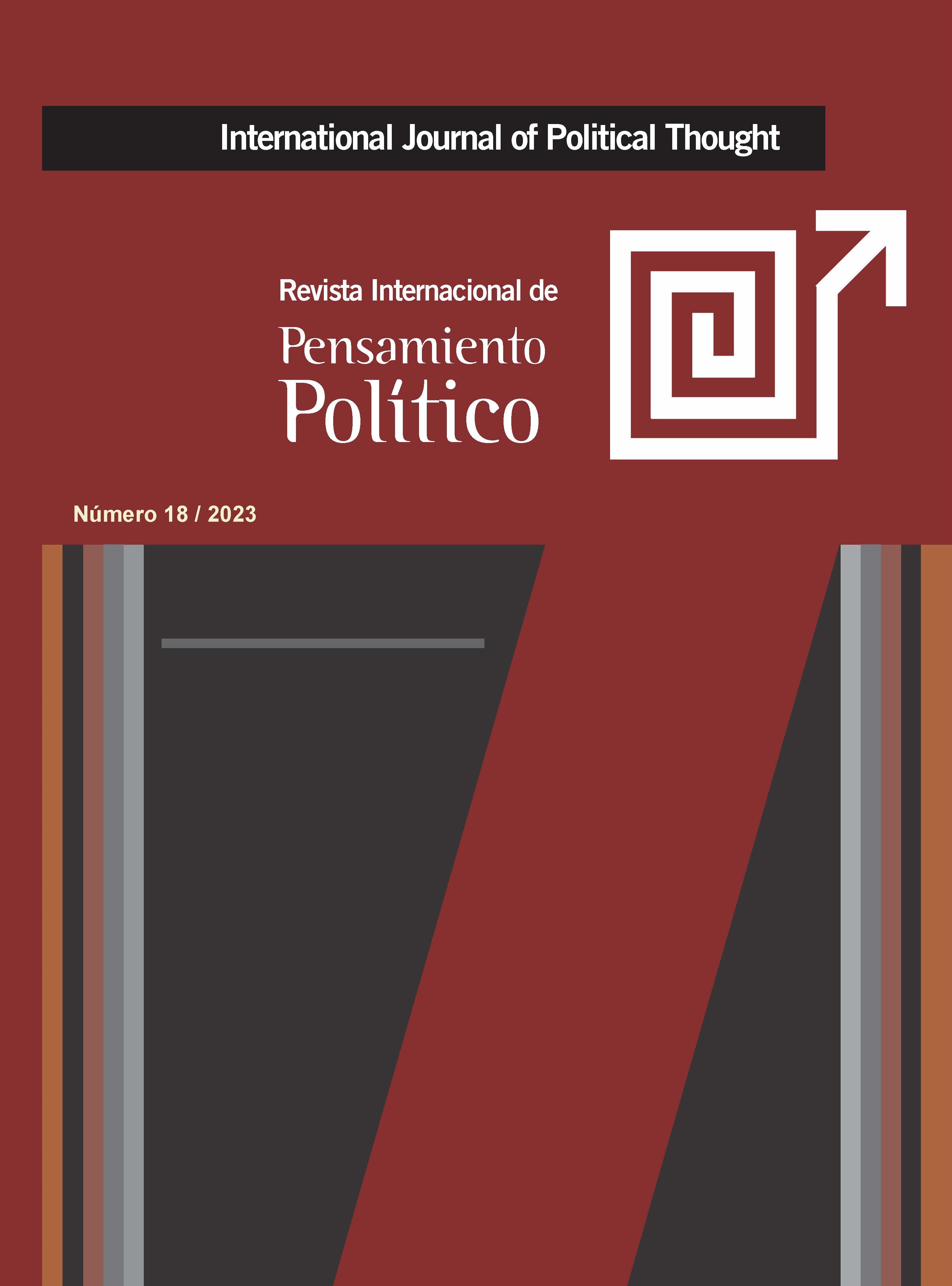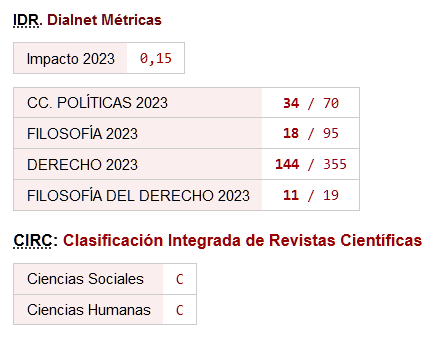The Right to be Delusional
Towards a Theory of Emergence
DOI:
https://doi.org/10.46661/revintpensampolit.8460Keywords:
Human Rights, delusion, religions, irrationalityAbstract
While the Universal Declaration of Human Rights (1948) and numerous other constitutions, international treaties and declarations proclaim and protect the right to freedom of religion, no documents, at the current time, appear to either proclaim or protect the broader freedom that the freedom of religion belongs to – the right to be delusional. This is not to, in any way, to denigrate any particular religion or religious belief. Rather, it is to recognize that a multitude of persistent religious beliefs represent a collective acceptance, by the human species, of irrational cultural practices as a part of our meaning making process and a fundamental aspect of our evolution. Why then, do irrational cultural practices not extend back to the individual? Why is it that individual irrational practices are, in the vast majority of cases, condemned as forms of mental illness or depression or insanity. Why do we condemn the irrational practices of the individual, but honor and protect the irrational practices of groups?
Downloads
References
Bayne, T., & Pacherie, E. (2005). In defence of the doxastic conception of delusions. Mind & Language, 20(2), 163-188. https://doi.org/10.1111/j.0268-1064.2005.00281.x DOI: https://doi.org/10.1111/j.0268-1064.2005.00281.x
Bentall, R. P. (2018). Delusions and other beliefs. Delusions in context, 67-95. https://doi.org/10.1007/978-3-319-97202-2_3 DOI: https://doi.org/10.1007/978-3-319-97202-2_3
Currie, G., & Jureidini, J. (2003). Art and delusion. The Monist, 86(4), 556-578. https://doi.org/10.5840/monist200386429 DOI: https://doi.org/10.5840/monist200386429
de Guevara, B. B. (2016). Myth in international politics: Ideological delusion and necessary fiction. Myth and Narrative in International Politics: Interpretive Approaches to the Study of IR, 15-46. https://doi.org/10.1057/978-1-137-53752-2_2 DOI: https://doi.org/10.1057/978-1-137-53752-2_2
Hopper, S., & McSherry, B. (2001). The Insanity Defence and international human rights obligations. Psychiatry, Psychology and Law, 8(2), 161-173. https://doi.org/10.1080/13218710109525016 DOI: https://doi.org/10.1080/13218710109525016
Kaliski, S. (2012). Does the insanity defence lead to an abuse of human rights?. African journal of psychiatry, 15(2), 83-87. https://doi.org/10.4314/ajpsy.v15i2.11 DOI: https://doi.org/10.4314/ajpsy.v15i2.11
Lothane, Z. (1997). Omnipotence, or the delusional aspect of ideology, in relation to love, power, and group dynamics. American Journal of Psychoanalysis, 57(1), 25. https://doi.org/10.1023/A:1024622504975 DOI: https://doi.org/10.1023/A:1024622504975
Marsh, G. E. (2009). The demystification of emergent behavior. arXiv preprint arXiv:0907.1117.
Mutua, M. W. (1995). The ideology of human rights. Va. J. Int'l L., 36, 589.
Quinlan, P. (2010). The Human Rights Delusion: A Defence of the Narrative Tradition of the Common Law. U. Notre Dame Austl. L. Rev., 12, 69.
Rivera, J. L. D. (1993). Creativity and psychosis in scientific research. American Journal of Psychoanalysis, 53(1), 77-84. https://doi.org/10.1007/BF01250075 DOI: https://doi.org/10.1007/BF01250075
Steers, J. (2009). Creativity: Delusions, realities, opportunities and challenges. International Journal of Art & Design Education, 28(2), 126-138. https://doi.org/10.1111/j.1476-8070.2009.01600.x DOI: https://doi.org/10.1111/j.1476-8070.2009.01600.x
Stenlund, M. (2013). Is there a right to hold a delusion? Delusions as a challenge for human rights discussion. Ethical theory and moral practice, 16, 829-843. https://doi.org/10.1007/s10677-012-9390-3 DOI: https://doi.org/10.1007/s10677-012-9390-3
Stenlund, M. (2014). Freedom of delusion: Interdisciplinary views concerning freedom of belief and opinion meet the individual with psychosis. (Doctoral Thesis)
Zizek, S. (2006). Against an ideology of human rights. Displacement, asylum, migration, 56-85. DOI: https://doi.org/10.1093/oso/9780192807243.003.0003
Downloads
Published
How to Cite
Issue
Section
License
Copyright (c) 2023 Mark Darius Juszczak

This work is licensed under a Creative Commons Attribution-NonCommercial-ShareAlike 4.0 International License.
Open access policy
Free and open access is allowed to any interested party to all the contents of the journal issues, free of charge, being able to print and transfer all the articles, with the only condition of specifying the source and authorship.
The journal: a) does not charge authorship costs for the processing of articles or for their submission, b) maintains copyright for authors without restrictions, c) facilitates authors to keep their publication rights without limitations.
The International Journal of Political Thought is an original work of the Laboratory of Political Ideas and Practices of the Pablo de Olavide University. All articles included in the Journal are original work of their respective authors. This Journal is freely offered to the scientific and academic community at no cost and releases the contents according to the license "Attribution-NonCommercial-ShareAlike 4.0 CC BY-NC-SA" of the Creative Commons project available in the following url: https://creativecommons.org/licenses/by-nc-sa/4.0/legalcode
If you wish to translate or compile any of the articles available here, please contact us at contacto












 ISSN: 1885-589X
ISSN: 1885-589X  Universidad Pablo de Olavide
Universidad Pablo de Olavide